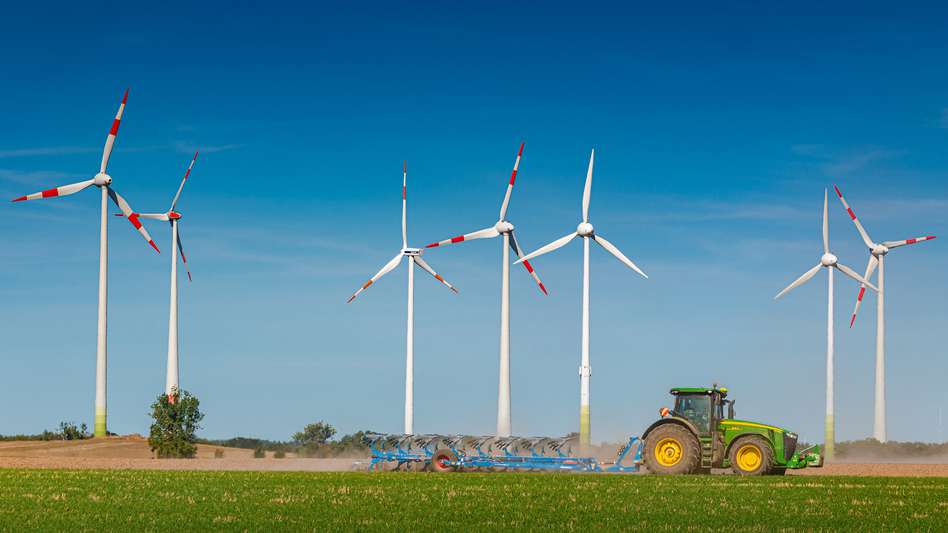Letters of authority and exclusivity agreements for renewable energy projects

As the UK moves towards a greener energy infrastructure, developers are increasingly seeking out landowners whose land is suitable for renewable energy projects such as wind farms, solar farms, anaerobic digestion plants and battery storage projects. Often these landowners are farmers who may be looking to diversify their land use.
Quite often the first approach a developer makes to a landowner would be sending them a ‘letter of authority’ and an exclusivity agreement. Andrew Harrison, a specialist in renewable energy law, provides insights into what these documents entail and why it’s important to take specialist legal advice if you receive one. It’s important not to sign anything without advice, to make sure you secure a good deal.
What is a letter of authority?
Once signed, a letter of authority is a legally binding document. It authorises a third-party intermediary to act on the landowner’s behalf. What this third party can do will be set out in the body of the letter. However, this usually includes the ability to correspond with network operators or the national grid to explore the possibility of securing a grid connection. In some cases, the letter of authority will permit the third-party intermediary to make an application for a grid connection on behalf of the landowner.
What is an exclusivity agreement?
It is not uncommon for an exclusivity agreement to be provided alongside – or within the body of the letter of authority. Once signed, an exclusivity agreement is a legal contract between two parties that restricts one party – typically the landowner – from entering negotiations with any other developer concerning any renewable projects on their land for a set period.
These agreements can sometimes grant rights to a developer to access your property to carry out initial works and inspections to determine the feasibility of a renewable energy project.
It is important that you carefully review any letter of authority or exclusivity agreement before signing, as either may contain terms and conditions that could impact your rights or obligations.
It is recommended that you seek expert legal or professional advice before entering into any form of an exclusivity agreement. Ideally, a landowner will only enter into such an agreement once the heads of terms of the transaction are agreed.
What should I do if I get a letter of authority and/or an exclusivity agreement?
Here are some steps to take if you receive a letter of authority:
- Read the document carefully. Make sure you understand what the developer is asking for and what their rights and responsibilities are
- Seek legal advice. It is advisable to consult with a solicitor who specialises in renewable energy projects to understand the legal implications of the documents you are being asked to sign
- Negotiate terms. If you are willing to grant the authority or exclusivity requested, you can negotiate the terms of the respective agreement with the developer. This may include the scope of the work, the duration of any authority or agreement and any compensation or other benefits
- Protect your interests. It is important to protect your interests and ensure that you are not granting more rights than necessary or being taken advantage of in any way. A solicitor can help you navigate the legal process, but it is recommended that you also employ a suitably experienced land agent who can negotiate the best possible commercial terms for you
- Keep copies of all documents. Make sure to keep copies of all correspondence, agreements and any other relevant documents. This will be useful in case of any disputes or issues that may arise in the future
If you’ve received a letter of authority or an exclusivity agreement, it can be important to seek legal advice from a trusted and experienced team like Tees. Our expert team of solicitors can provide you with the guidance and support you need.
Call our specialist solicitors on 0808 231 1320
Tees are here to help
We have many specialist lawyers who are based in:
Cambridgeshire: Cambridge
Essex: Brentwood, Chelmsford, and Saffron Walden
Hertfordshire: Bishop's Stortford and Royston
But we can help you wherever you are in England and Wales.
Chat to the Author, Andrew Harrison
Associate, Commercial Property, Chelmsford office
Meet Andrew
